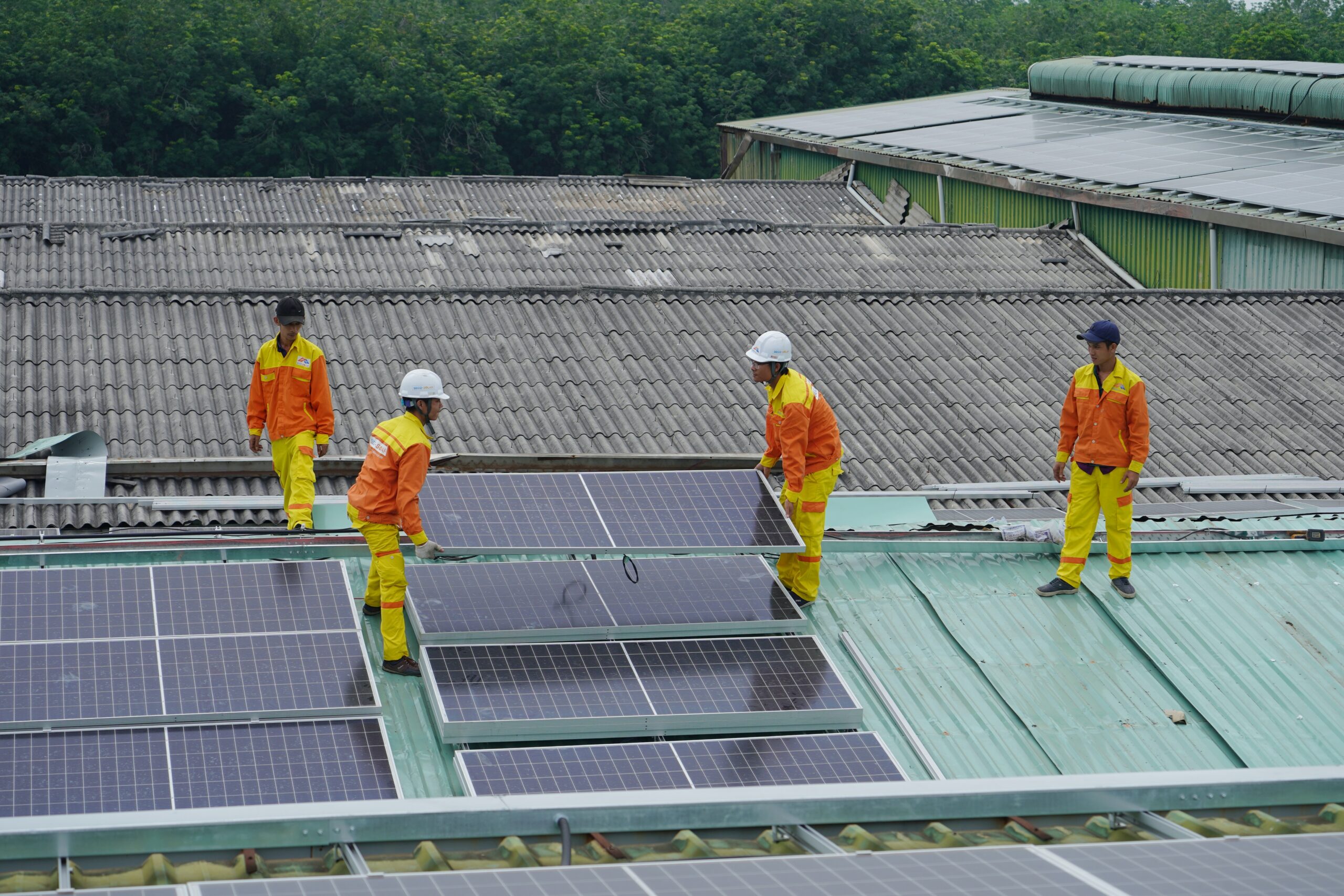It’s a common question – are solar panels waterproof? With more and more people turning to renewable energy sources, it is important to make sure the technology you use can handle different weather conditions.
That’s why understanding how waterproof your solar panel system is will give you peace of mind knowing that your home or business has reliable energy. In this article, we’ll answer the question: Are solar panels waterproof?
We’ll discuss what makes solar panels waterproof and how they protect themselves from rain and other elements. So read on if you want to learn everything there is to know about
- 1. What Are Solar Panels and Why Is Waterproofing Important?
- 2. Are Solar Panels Waterproof? How?
- 3. What Materials Make Solar Panels Waterproof?
- 4. How Does Weather Affect the Performance of a Solar Panel System?
- 5. Can Rain Damage or Shorten the Lifespan of a Solar Panel System?
- 6. Best Practices for Keeping Your Solar Panels Protected From The Elements
- 7. Conclusion: Solar Panels can be Made Waterproof Easily
1. What Are Solar Panels and Why Is Waterproofing Important?
Solar panels are devices that absorb sunlight and convert it into electricity. It is an important renewable energy source for homes, businesses, and other facilities.
Waterproofing solar panels is essential to ensure their longevity as exposure to the elements can lead to corrosion or damage over time. Additionally, waterproof coatings also protect against UV radiation which can damage electrical components in the panel itself.
By taking extra steps to make sure they are properly protected from water and other factors, you can ensure your solar panels last longer and provide maximum efficiency throughout their lifetime
2. Are Solar Panels Waterproof? How?
Yes, solar panels are waterproof. Solar panel systems have a high-grade, corrosion resistant aluminium frame with sealed edges to protect the cells from water damage and dirt. The glass covering on top of the panel is also specially designed to be water repellent so it can withstand rain and snow without any issues.
3. What Materials Make Solar Panels Waterproof?
Solar panels need to be protected from the elements in order to function properly. To make them waterproof, solar panels are often covered with a layer of ethylene vinyl acetate (EVA), which is then encapsulated in tempered glass and framed with an aluminium alloy.
This provides protection from moisture and ultraviolet rays that can damage the panel over time.
4. How Does Weather Affect the Performance of a Solar Panel System?
The weather can have a big impact on the performance of your solar panel system. When the sun is out, and there is no cloud cover, it will be at its most efficient. On days with heavy clouds or rain, your system won’t produce as much electricity due to the lack of sunshine.
Additionally, snowfall can also reduce efficiency levels if it’s not cleared off quickly enough from the panels’ surface.
5. Can Rain Damage or Shorten the Lifespan of a Solar Panel System?
Yes, rain can damage or shorten the lifespan of a solar panel system. Rain can cause corrosion of electrical components and reduce the efficiency of panels over time when there is build up on their surface.
Additionally, heavy rains may push water inside the system which could lead to short circuits if not taken care off quickly. Regular maintenance should be done to keep your solar panel system in optimal condition, even if it’s just cleaning off dirt or leaves that have accumulated due to rainfall.
6. Best Practices for Keeping Your Solar Panels Protected From The Elements
When it comes to keeping your solar panels safe from the elements, there are a few best practices you should follow. Firstly, make sure that your panels aren’t exposed to too much heat or cold as this can damage their performance.
Secondly, keep them clean – debris and dust can reduce their efficiency by up to 30%. Thirdly, check for any signs of wear and tear regularly – hail storms can cause serious damage if left unchecked.
Finally, install some form of storm protection such as a roof-mounted shield or covering for extra protection during excessively windy conditions.
7. Conclusion: Solar Panels can be Made Waterproof Easily
Yes, solar panels can be made waterproof easily. This is done by using a special coating that has been designed to provide protection from water and other elements.
The coating helps to make sure the panel remains functioning optimally, even when exposed to moisture or rain. Solar panels are an excellent way of harnessing renewable energy and with this extra layer of protection, they become even more reliable for long-term use in any environment!
If you found this article insightful, you should absolutely check out other articles on how you can use the solar energy effectively for various purposes (homes, vehicles, etc.).
